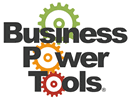Incase you missed it, a while back, Uber’s investors fired the CEO. Being fired by your investors is not most entrepreneurs’ idea of a successful exit strategy. And perhaps even one of our greatest fears… but it doesn’t have to be so. Especially when it’s a matter of maturity, mindfulness, respect and appreciation that can easily be incorporated into your company’s culture. Obviously, investors recognize the value of good values and practices — because they’re good for business, and, when used wholeheartedly, actually make managing easier.
Good values and practices serve to inform your thinking and actions regarding everything and everyone in and in contact with your company. I think enough has already been said about Uber and its CEO. But this event prompted me to share one of our many templates. Our purpose is a to provide you the tools you need to start, fund and scale your business — and exit successfully!
Here’s a free customizable template you can use now — excerpted from our Business Power Tools: Employee Manual Builder:
[Company] Core Values
This list is a tool you and your executives can use to develop your core values.
Use these talking points as they are, or modify them to incorporate your specific value statements.
Core Values are the standards by which we measure our performance; and our interactions with each other, with our customers and with our vendors. Core values help define our approach to our business. These are the things we value:
Integrity
- Honest, committed internal and external relationships.
- Honoring and respecting another’s point of view
- Doing what is right for the business and for our customers.
- Telling the truth.
Constant Improvement
- Constant and never-ending improvement—ensuring quality and productivity across all areas in the company.
- Seeking knowledge and understanding, then applying this to ourselves, our customers, our processes, and our products.
Sound Decision-Making
- We make decisions we L.I.K.E. Our decisions are based on: Logic, Intuition, Knowledge, and Experience.
Acknowledgment & Appreciation
- We regularly acknowledge and appreciate our fellow employees, our customers, vendors, partners, and ourselves, for contributions made in support of Company’s vision and pursuit of excellence.
Dedication
- Doing what is necessary to get the job done, regardless of the function or job.
Courtesy
- Being respectful of each others needs, both personally and professionally.
Sustainability
- Can our products or services be made in more sustainable ways? How can we do as much as possible from within our own offices to our choices of vendors and activities?
Core Practices
Core Practices are the things we do within our organization to help maintain a high level of integrity, and establish an environment where what needs to be said can be said—with confidence that both speaker(s) and listener(s) will be treated with respect, and that their ideas and contributions will be valued, whether those ideas are implemented, or not. This is what we practice:
Listening “Generously”
- We listen for the contribution in each others speaking – we suspend assessments, opinions, and judgments.
- We give the person our undivided attention.
- If you can’t give your undivided attention right now, request to speak with the person when you can listen to them fully.
Speaking Straight
- We move past saying “what is supposed to be said” to speak responsibly and honestly, in a way that forwards appropriate action.
- We make clear and direct requests.
- (We don’t make subtle or veiled requests.)
Being FOR Each Other
- Key to a successful team is being “for” each other; much like one would be for a football team.
- We give 100% support for everyone in the company and the roles they play.
Honoring Agreements & Commitments
- Do what you say you’ll do—others are depending on you.
- If you can’t keep your agreement, re-negotiate it ahead of time.
- If you break an agreement, acknowledge that you did and negotiate a way to clean up your mess.
Acknowledging & Appreciating Each Other
- Each of us is a source of acknowledgment and appreciation for every other person in the company.
- This includes giving, receiving, and requesting acknowledgment.
Taking 100% Ownership
- Everyone is 100% accountable for their role in the company.
- We follow through on commitments internally and externally.
- This does not mean taking on too much (110%) nor does it mean taking on too little (90%).
- Everything that happens in the company is the result of its people.
 Now that you have a headstart on your values and practices, how about having an entirely new policies and procedures handbook?
Now that you have a headstart on your values and practices, how about having an entirely new policies and procedures handbook?
Here’s the easy way to create an employee policies and procedures manual to establish your “ground rules” for working at your company, and to build a productive culture. We like people and presume that your employees are intelligent, well-intended individuals — it’s important to show them that you respect them as people as well as employees.
Pre-written employee policy handbook includes 200+ sample employee policies & procedures
Eliminates most of the loopholes that competitors’ software do not. We even inserted “please” & “thank you’ in about 150 places! Developed with HR Experts (we are a member of SHRM), attorneys, successful entrepreneurs, and psychologists. This employee policy manual software template provides excellent management training, ensures that employees are treated fairly, and protects you from lawsuits.
Expert comments throughout explain issues and give direction. Includes everything you need to plan, develop & implement your employee policies and produce a comprehensive employee office policy manual.





